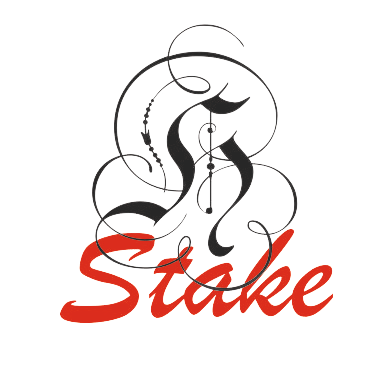MOOCs, or Massive Open Online Courses, originated in the early 2010s as a way to provide flexible, affordable, and accessible education to a global audience. Initially offered by prestigious universities like Stanford and MIT, these online courses aimed to democratize education by making high-quality learning experiences available to anyone with an internet connection. Over time, MOOCs have grown from experimental offerings to mainstream educational tools. Today, they provide a wide range of learning opportunities, from individual courses to full degrees and professional certifications, making them a popular choice for individuals looking to advance their careers or acquire new skills.
The importance of MOOCs in career advancement lies in their flexibility and accessibility. Unlike traditional education, MOOCs allow learners to study at their own pace, from anywhere in the world, making it easier to manage education alongside work and personal commitments. This flexibility is particularly valuable for professionals who need to upskill or switch careers. Additionally, MOOCs support lifelong learning, enabling individuals to stay current with the latest industry trends and technologies without the need for long-term, costly educational programs. In a rapidly changing job market, the ability to continuously learn and adapt is crucial, and MOOCs provide a convenient and effective way to achieve this. To effectively select the Best MOOCs that align with your career path, you need to adopt these measures:
1. Criteria for Selecting the Best MOOCs for Career Advancement
Accreditation and Recognition
When selecting a MOOC, the accreditation and recognition of the course are critical factors. The credibility of a MOOC is often tied to the institution or organization offering it. Courses developed in partnership with prestigious universities or well-known industry leaders are more likely to be recognized by employers. Such collaborations lend weight to the course on your resume, signalling to potential employers that the skills you’ve acquired are from a reputable source. Additionally, some MOOCs are designed with direct industry input and offer certifications that are recognized by professional bodies, adding further value to your professional profile.
Relevance to Career Goals
Another crucial criterion for selecting a MOOC is its relevance to your career goals. It’s important to choose courses that align with your professional aspirations, whether you’re looking to advance in your current field, switch careers, or acquire new skills. The course content should be directly applicable to your objectives, ensuring that the knowledge and skills you gain can be immediately utilized in your career. Additionally, researching the demand for specific skills in your industry can help guide your choice. For instance, skills in areas like data science, cybersecurity, and digital marketing are highly sought after across various industries, making MOOCs in these fields particularly valuable.
Course Content and Quality
One important component of a MOOC’s efficacy is the quality of the course material. High-quality MOOCs offer comprehensive coverage of foundational knowledge and advanced topics, providing a rich learning experience. This depth and breadth of material prepare learners for real-world applications and challenges. In addition, the quality of the course is greatly influenced by the lecturers’ experience. Instructors who are leaders in their fields or have extensive practical experience can offer valuable insights that go beyond theoretical knowledge, enhancing the overall learning experience.
Learning Format and Support
The learning format and support available in a MOOC can significantly impact your success. MOOCs typically offer two types of learning formats: self-paced and structured. Self-paced courses allow learners to progress at their speed, which is ideal for those with unpredictable schedules. On the other hand, structured courses follow a set schedule with deadlines, providing a more traditional classroom experience that can help maintain discipline. Additionally, the availability of mentorship, discussion forums, and peer support can enhance the learning experience by offering guidance, feedback, and opportunities for collaboration, making the learning process more interactive and engaging.
Cost and Financial Aid
Finally, the cost of a MOOC and the availability of financial aid are important considerations. While many MOOCs are free, some advanced courses, certifications, and specializations require payment. It’s essential to weigh the cost against the potential career benefits to determine whether the investment is worthwhile. For those who cannot afford the full cost, many platforms offer financial aid or scholarships. These options can make high-quality education accessible to a broader audience, allowing more learners to take advantage of the career advancement opportunities that MOOCs provide.
2. Top Platforms Offering MOOCs for Career Advancement
Coursera
Coursera is one of the most prominent MOOC platforms, recognized for its extensive course offerings from top universities and companies around the world. It covers a broad spectrum of subjects, making it a popular choice for learners aiming to enhance their skills or earn valuable certifications. Coursera is particularly known for its specializations, which are a series of courses designed to build expertise in a specific area. Additionally, the platform offers professional certificates in collaboration with industry leaders, providing credentials that are highly regarded by employers and can significantly boost career prospects.
edX
Founded by Harvard and MIT, edX stands out as a leading MOOC platform, known for its high academic standards and wide array of course offerings. edX provides courses from some of the most prestigious institutions globally, catering to a diverse range of subjects. A distinctive feature of edX is its MicroMasters programs, which are graduate-level courses aimed at providing deep knowledge in a particular career field. These programs often offer credits that can be applied towards a full master’s degree. In addition, edX offers professional certificates that focus on the specific skills demanded by the workforce, making it an excellent choice for career advancement.
Udacity
Udacity is well known for emphasizing technology and providing career-focused education, particularly in programming, data science, and artificial intelligence. The platform collaborates closely with industry partners to design courses that align with the current needs of the job market, ensuring that learners acquire relevant and up-to-date skills. Udacity’s flagship offering is its Nanodegree programs, which are intensive courses aimed at preparing learners for specific job roles. Beyond coursework, Udacity provides career services such as resume reviews, interview preparation, and job placement assistance, making it an ideal platform for individuals looking to transition into new career paths.
FutureLearn
FutureLearn is a MOOC platform known for its diverse course offerings, particularly in the social sciences, healthcare, and humanities. The platform emphasizes an engaging learning experience, with a strong focus on discussion and interaction among learners. FutureLearn offers both short courses and full degree programs, with some courses being accredited, allowing them to count towards formal qualifications. This accreditation makes FutureLearn an appealing option for learners who are not only interested in gaining new knowledge but also in earning recognized credentials that can further their academic or professional careers.
LinkedIn Learning
LinkedIn Learning, formerly Lynda.com, specializes in professional skills development, offering courses across business, technology, and creative fields. The platform is integrated with LinkedIn, allowing users to showcase their completed courses and newly acquired skills directly on their LinkedIn profiles, enhancing their professional visibility. LinkedIn Learning is particularly suited for professionals who need to quickly acquire new skills or refresh existing ones. Its courses are typically shorter and more focused, making them ideal for busy professionals looking to stay competitive in their careers without committing to longer-term educational programs.
3.Top MOOCs for Specific Career Paths
Technology and IT
For those pursuing a career in technology and IT, MOOCs offer a wide range of courses tailored to specific skills in software development and data science. Courses in software development cover everything from basic programming languages such as Python and Java to more advanced topics like cloud computing and cybersecurity. Platforms like Coursera and Udacity provide specialized programs that teach these skills and help learners apply them in real-world scenarios, making these MOOCs ideal for anyone looking to enter or advance within the tech industry. Additionally, data science and AI are among the most in-demand fields today, with MOOCs available that cover crucial topics such as machine learning, data analysis, and neural networks, often created in collaboration with industry giants like Google and IBM.
Business and Management
In the realm of business and management, MOOCs cater to a variety of career paths, including project management and entrepreneurship. Project management is a vital skill across many industries, and MOOCs that offer certifications, such as PMP (Project Management Professional) prep courses, are highly valued by employers. These courses typically cover essential methodologies like Agile, Scrum, and Lean Six Sigma, equipping learners with the tools needed to manage projects effectively. For aspiring entrepreneurs, MOOCs provide a wealth of knowledge on starting and growing a business, with topics ranging from business planning and funding to marketing and scaling operations. Platforms like edX and Coursera feature entrepreneurship courses developed by leading business schools, offering valuable insights for those looking to launch their ventures.
Marketing and Digital Skills
As digital marketing continues to evolve, professionals in this field can benefit from MOOCs that keep them updated with the latest strategies and tools. Numerous topics are covered in digital marketing courses, such as data analytics, social media marketing, SEO, and content marketing. Certifications earned through these MOOCs can significantly enhance a resume, demonstrating a commitment to staying current in a rapidly changing field. Additionally, for those specializing in social media strategy, MOOCs offer targeted learning on how to effectively use platforms like Facebook, Instagram, and LinkedIn to build brand presence and engage audiences, providing essential skills for navigating the digital landscape.
Healthcare and Medicine
MOOCs also cater to professionals in healthcare and medicine, particularly in areas like healthcare management and public health. Healthcare management courses focus on the administrative and leadership aspects of healthcare, teaching essential skills in finance, operations management, and leadership. These MOOCs are ideal for healthcare professionals aiming to transition into management roles. For those interested in public health, MOOCs offer courses on topics such as epidemiology, global health, and health policy. These courses are especially relevant for individuals looking to work with governments, NGOs, or international organizations dedicated to improving public health.
Creative Arts and Design
For those in the creative arts and design fields, MOOCs provide opportunities to learn or enhance skills in areas such as graphic design and UX/UI design. Graphic design MOOCs teach both the technical skills, like proficiency in Adobe Creative Suite, and the creative aspects of design, making them suitable for beginners and experienced professionals alike. UX/UI design is an increasingly important field that focuses on creating user-friendly interfaces and experiences. MOOCs in this area cover key topics such as user research, prototyping, and usability testing, often including hands-on projects that can be added to a professional portfolio, helping learners demonstrate their skills to potential employers.
4. MOOC Learning Strategies for Career Advancement
Setting Clear Goals
Before enrolling in a MOOC, it’s crucial to ensure that the course aligns with your career objectives. Whether your goal is to achieve a promotion, switch careers, or enhance your current skill set, having a clear objective will guide your learning path and help you choose the most relevant courses. Setting clear goals also provides the motivation needed to stay committed throughout the learning journey, ensuring that the time and effort you invest in the MOOC directly contributes to your professional growth.
Effective Time Management
Balancing MOOCs with work and personal life can be challenging, making effective time management essential for success. To manage your time well, it’s important to set aside dedicated study periods, break down course content into smaller, manageable sections, and maintain a consistent study routine. Utilizing tools such as calendars, reminders, and even study groups can help you stay on track and ensure that you complete the course within your desired timeframe while managing other responsibilities.
Networking and Collaboration
MOOCs often provide opportunities to engage with a community of learners, instructors, and industry professionals. Leveraging these opportunities by participating in discussion forums, group projects, and networking events can significantly benefit your career. Engaging with others enhances your learning experience and expands your professional network, which can be invaluable when seeking job opportunities or career advice. These connections may lead to new opportunities and collaborations that can further your career goals.
Applying MOOC Learning to Real-world Projects
One of the most effective ways to showcase the skills you’ve acquired from a MOOC is by applying them to real-world projects. Creating a portfolio, developing an application, or conducting a research project based on your learning can provide tangible evidence of your skills to potential employers. Many MOOCs include hands-on assignments that simulate real-world scenarios, allowing you to gain practical experience while reinforcing your knowledge. These projects demonstrate your capabilities and serve as concrete examples of your expertise in job interviews or professional settings.
5. Challenges and Limitations of MOOCs
Even with their growing popularity, low completion rates are a problem for many MOOCs. Learners often struggle to finish courses due to factors like limited time, difficulty maintaining motivation, and the self-directed nature of online learning. These issues can hinder progress, but understanding them can help learners develop strategies, such as setting clear goals and creating a consistent study schedule, to overcome these obstacles and complete their courses.
Another significant challenge with MOOCs is the variation in course quality. Not all courses are created equal, and the quality can differ widely based on the platform, instructor, and course content. This inconsistency makes it crucial for learners to thoroughly research and read reviews before enrolling to ensure they choose a course that aligns with their expectations and learning needs. Making the correct course choice is essential to a fulfilling and productive learning experience.
While MOOCs offer valuable learning opportunities, they are not always a complete substitute for traditional education. Some learners may find that MOOCs are best used as a supplement to formal education, providing additional skills or knowledge that enhance their degrees. Others might use MOOCs as their primary learning tool, depending on their individual career goals and circumstances. Understanding the role of MOOCs in the broader educational landscape is important for making informed decisions about how to incorporate them into one’s learning journey.
6.Future Trends in MOOCs for Career Advancement
The future of MOOCs for career advancement is being shaped by advancements in AI and adaptive learning technologies. These innovations are making it possible to offer personalized learning experiences that adjust content and pacing based on individual needs. By tailoring the learning journey to each learner’s unique requirements, these technologies enhance the efficiency and effectiveness of MOOCs, making them a more powerful tool for professional development.
In addition to technological advancements, there is a growing trend of collaboration between MOOC platforms and industry giants. Companies are increasingly partnering with these platforms to create specialized courses that address their specific training and development needs. These collaborations ensure that MOOCs are aligned with current industry requirements, equipping learners with skills that are directly applicable in the workplace and enhancing their employability.
The rise in specialized courses is contributing to the expansion of the MOOC environment. As the variety of course offerings increases, new MOOCs are emerging in specific areas tailored to various industries and professions. This trend towards specialization allows learners to access highly relevant content that can provide them with a competitive edge in their careers, addressing the demand for targeted skills and knowledge in an ever-evolving job market.
Conclusion
MOOCs offer a wealth of opportunities for career advancement, enabling learners to acquire new skills and earn industry-recognized certifications. By selecting courses that align with your career goals and employing effective learning strategies, you can fully leverage the benefits of these online platforms. Whether you’re aiming to advance in your current role, switch careers, or enhance your skill set, MOOCs provide valuable resources to help you achieve your professional objectives.
With the extensive range of courses available, now is an ideal time to explore and engage with MOOCs for your career development. They offer a flexible, affordable, and accessible path to lifelong learning, helping you stay current with industry trends and develop new competencies. Embracing MOOCs can significantly contribute to your career growth and open up new opportunities in a rapidly evolving job market.





